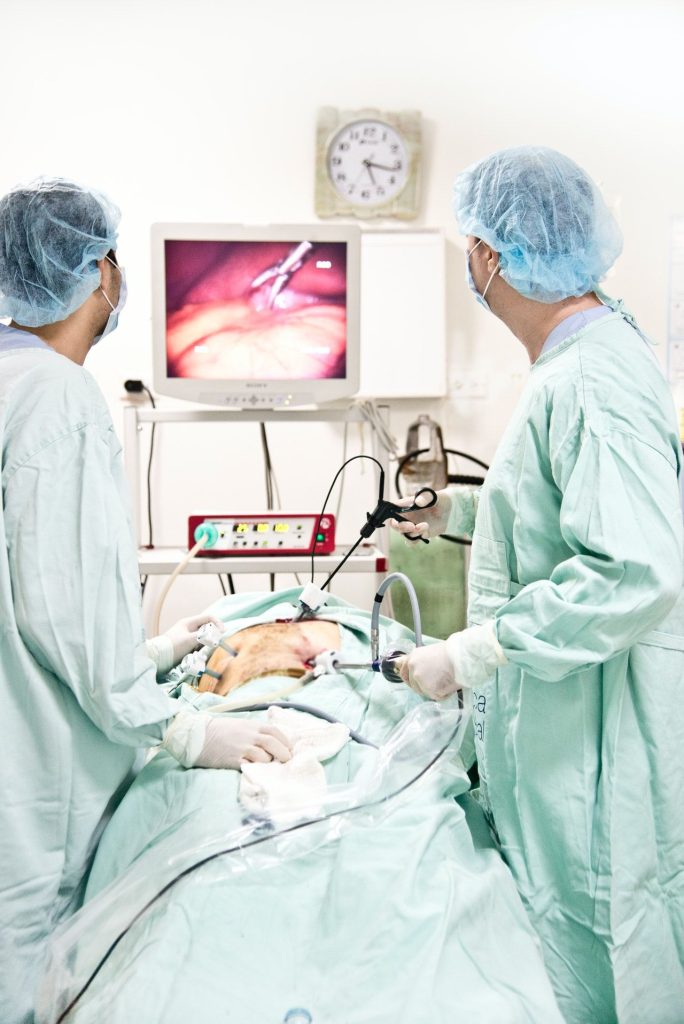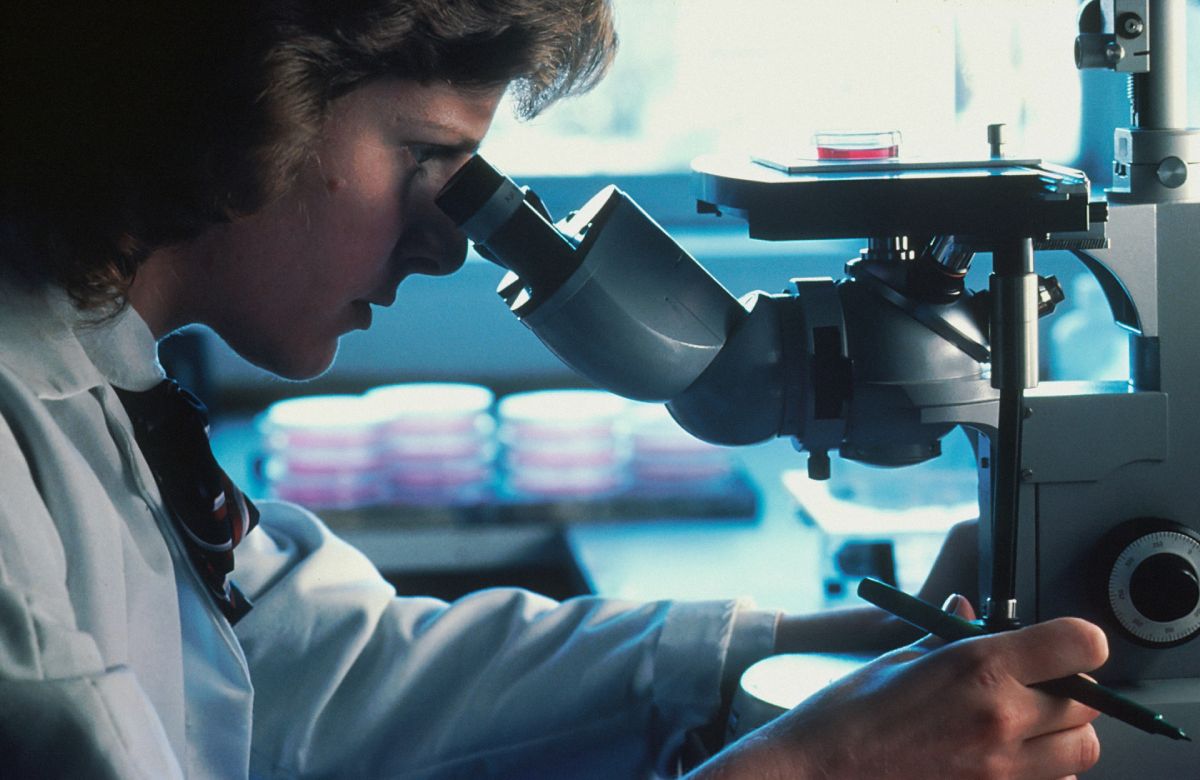Cancer is the leading cause of death in the world and when it comes to the most common kind of cancer, colorectal cancer is the fourth most common in the United States and the second most common cause of cancer death.
This is why abnormal tissue development in the colon, like hyperplastic polyps, could cause concern for most people.
But should you be alarmed and should hyperplastic polyposis cause any concern?
What is Hyperplastic Polyposis?

A hyperplastic polyp or hyperplastic polyposis (HP) is a rare gastrointestinal disorder characterized by the development of numerous, small, benign growths (polyps) in the colon.
The term comes from hyperplasia or the increase in the cells in a tissue or an organ, and polyps which are an abnormal growth of tissue.
Polyps could usually develop in the stomach, throat, nose, colon, ear canal, and cervix.
These hyperplastic polyps found in the colon are not cancerous, but they can cause significant symptoms such as bleeding, pain and blockages in the intestine.
The Causes of Hyperplastic Polyps
Polyps found in different parts of the body are caused by a number of things like medications and other conditions that could cause abnormal growth in cells.
For hyperplastic polyps, it can be caused by an unregulated growth of cells which causes polyps to grow. In some cases, it may be related to genetics or abnormal immune function.
Other causes can include stress, chronic inflammatory response and hormonal dysfunctions.
Neoplastic vs. Hyperplastic Polyps
Although hyperplastic polyps are benign and could be removed or reversed through surgery, there are types of polyps that have the potential to become cancerous.
Neoplastic polyps or neoplasia is a kind of condition where there is an abnormal growth of tissue that is not under physiological control. While hyperplasia is benign, neoplasia is mainly malignant.
In hyperplasia, once the stimulus is removed, the abnormal increase in cell number stops. On the other hand, neoplasia is caused by a genetic change. So cell proliferation is uncontrollable which could lead to cancer. Neoplasia is often linked together with the term ‘tumor’.
Examples of hyperplastic polyps include gingival enlargement and fibroma, while examples of neoplastic polyps include squamous cell carcinoma and serrated types of polyps that can grow.
Symptoms of Hyperplastic Polyps

Hyperplastic polyps can affect people of any age, but it’s more common in adults.
Symptoms of colon polyps can vary from person to person, but may include:
- Bleeding from the intestine
- Intestinal blockage
- Infection
- Tumors
- Diarrhea
- Weight loss
In some cases, hyperplastic polyps may cause no symptoms at all. However, if left untreated, they can lead to serious health problems such as colorectal cancer.
If you or someone you know has been diagnosed with HP, it’s important to understand the symptoms and effects of the condition. Talk to your doctor about any questions or concerns you have as they can help you develop a treatment plan that meets your needs.
Treatment for HP depends on the individual’s symptoms and needs. Options may include surgery, medication, or diet changes.
Hereditary Hyperplastic Polyp Disorders
Similar to colon cancer, colon polyps can be inherited as well. If you have one of these hereditary conditions, you have a higher risk of developing hyperplastic polyps or colon cancer.
Knowing this can help you prevent or detect hyperplastic polyps early.
- Familial Adenomatous Polyposis FAP is a genetic disorder that causes tumors to form in the intestines or hundreds (or thousands) of polyps to form in your colon.
People with FAP have a high risk of developing colon cancer, so it’s important to catch the disease early and treat it.
- Gardner’s syndrome Gardner’s syndrome is a rare genetic disorder that affects the bones and teeth. It is caused by a defect in the genes that control tissue growth.People with Gardner’s syndrome are typically taller than average and have unusually long arms and legs. They also have a higher-than-average risk of developing cancer. Gardner’s syndrome can cause problems not just in the colon but with the bones in the skull, and often leads to the early onset of arthritis.
- Lynch Syndrome Lynch Syndrome is a genetic disorder that increases the risk of developing certain types of cancer, including colon cancer. The condition is caused by a mutation in the Lynch Syndrome gene, which is responsible for repairing DNA damage. When this gene is mutated, it can’t repair the damaged DNA as effectively, leading to an increased risk of cancer. People with Lynch Syndrome are also more likely to develop other types of cancer, including ovarian and uterine cancers.People with Lynch Syndrome should have regular screenings for colon cancer, and they may also need to be screened for other types of cancer.
- Peutz-Jeghers Syndrome Peutz-Jeghers Syndrome (PJS) is a condition that increases the risk of developing certain types of cancer, most notably colon cancer.PJS is caused by mutations in the LKB1 or STK11 gene, which regulates cell growth and division. People with PJS typically have polyps in their colons, which can develop into cancer over time. Although PJS increases the risk of colon cancer, it does not guarantee that someone will develop the disease. Many people with PJS live long, healthy lives.
- MUTYH-associated polyposis (MAP) MUTYH-associated polyposis (MAP) is a hereditary condition that increases the risk of developing colon cancer. People with MAP typically develop many polyps in their colon, which can lead to cancer if not removed.
There is no cure for MAP, but it can be treated through surgery to remove the polyps.
Treatments for Hyperplastic Polyps

Treatment for hyperplastic polyps focuses on preventing the growth of polyps and removing any that have already formed. Surgery is typically the primary treatment for HP, but medications and dietary changes may also be recommended.
Surgical Procedures for Hyperplastic Polyps
Surgery is the most common treatment for hyperplastic polyposis. The type of surgery that is used depends on the extent of the disease.
There are different types of surgical procedures that can be used to treat hyperplastic polyposis. The most common type of surgery is called a colectomy.
A colectomy procedure is a surgical procedure where a part of the colon is removed. This type of surgery can also be recommended for non-cancerous conditions like ulcerative colitis, and Crohn’s disease.
Another type of surgery is called an ileostomy. This procedure removes the small intestine and attaches the end of the large intestine to an opening in the abdominal wall. This opening is called a stoma. A stoma allows waste to pass from the intestines into a bag that is worn outside the body.
Some people with hyperplastic polyposis also need radiation therapy before or after surgery. Radiation therapy uses high-energy x-rays to kill cancer cells.
How Can Hyperplastic Polyp on Colon or Stomach be Prevented?
Developing healthy habits can reduce your risk of getting colon polyps as well as colon cancer. Here are some tips that can help you with prevention:
Adopt healthy eating habits
Your diet should be high in fruits and vegetables, especially those that are high in antioxidants like nuts, berries, tomatoes, and prunes. Antioxidants have the ability to protect cells from damage caused by free radicals.
It’s also important to avoid foods that are high in fat and calories, as they can contribute to weight gain and increase your risk of developing cancer.
Here are some tips to help you get started:
- Eat plenty of fruits and vegetables of all different colors
- Avoid processed foods, sugary drinks, and fast food
- Include lean protein sources such as chicken, fish, or tofu in your diet
- Avoid red meat
- Drink plenty of water
Get regular exercise
Daily exercise enhances the efficiency of your gastrointestinal system and promotes healthy blood flow and circulation which enables your colon to perform at its best.
The regular amount of exercise recommended to prevent colon-related diseases is between 30 to 60 minutes a day. If you can’t fit this into your schedule then exercising at least an hour a week is enough to help you lower the risk of getting polyps.
Physical activities you can do include walking, jogging, running, or jump ropes.
Have regular screenings
To prevent hyperplastic polyp, you should visit your doctor and do regular screenings. This habit is recommended for adults age 45 and above. This will help you prevent any kind of issues related to your colon or abdomen, or detect them early.
Following these tips can help you not just prevent hyperplastic polyps but prevent cancer and live a healthier life.
When to Visit Your Doctor
Although hyperplastic polyps are typically benign, there are still chances of developing cancerous polyps or tumors.
Always have regular screenings especially when you reach the age of 45 and be proactive in living a healthy lifestyle to boost your immune health.
On the other hand, if you feel pain in your stomach, you’re losing weight, or you find blood in your stool, then visit your doctor right away.
If you have been diagnosed with hyperplastic polyposis or hyperplasia, it is important to be monitored by a doctor regularly to ensure that any potential risks are identified and addressed as soon as possible.




